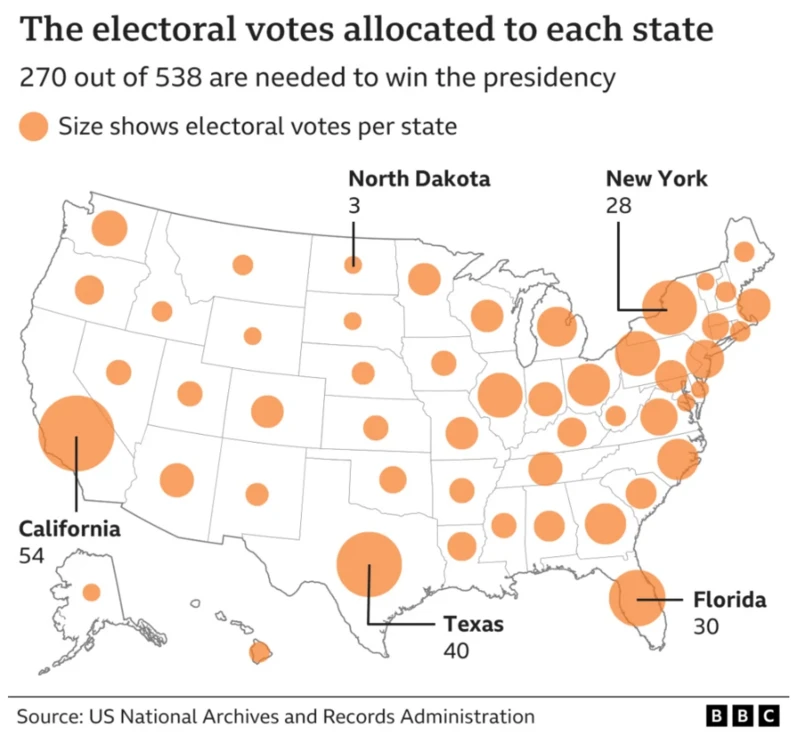As Americans across the nation head to the polls today, the complex process of electing the next president of the United States begins.
Unlike most democratic countries where the candidate with the most votes wins, the U.S. employs a unique system known as the Electoral College.
Here’s how this system works:
Electoral College – The Deciding Factor
When Americans vote, they are not directly choosing a president. Instead, they are voting for “electors,” representatives from each state who will cast official votes for president and vice president on December 17. These 538 electors form the Electoral College, a system dating back to the founding of the United States. Each U.S. state is assigned a certain number of electors based on population size: populous states like California have 54 electoral votes, while smaller states like Wyoming have just three.
To win the presidency, a candidate must secure at least 270 electoral votes – more than half the total. Notably, the candidate with the most popular votes nationwide does not automatically win. Instead, they must win enough individual state contests to build this electoral majority.

How Electoral Votes Are Allocated
Most states and the District of Columbia follow a “winner-take-all” approach. This means that whichever candidate wins the popular vote in these states receives all of that state’s electoral votes. Only Maine and Nebraska use a different system that allows for splitting votes among candidates, giving each a proportional share.
Key Dates in the Election Process
- Electoral College Vote: On December 17, Electors will gather in their respective state capitals to formally vote for the next president and vice president.
- Congress Certification: On January 6, 2025, Congress will meet in a joint session to count and certify the Electoral College votes.
- Inauguration Day: On January 20, 2025, the newly elected president will be sworn in on the steps of the U.S. Capitol in Washington, DC, officially beginning their term.
“Swing States” – The Deciding Factor
In most elections, the results are heavily influenced by a few competitive states known as “swing states.” Unlike states with strong traditional leanings toward one party, swing states are unpredictable and can be won by either candidate. As a result, candidates often concentrate their campaigns in these key battlegrounds, knowing they could ultimately decide the outcome.
When to Expect Results
Though many voters will head to the polls on Election Day, many cast ballots early or by mail. Counting these votes can take time, meaning the result may not be immediately clear in some states. For instance, in the 2020 election, media outlets did not confirm a winner until several days after Election Day, underscoring the complexity of the U.S. system. Today, election officials emphasize that counting every vote accurately remains the top priority, even if it takes time.
A Complex and Historic Process
Unlike any other world, the U.S. Electoral College serves as a check on direct democracy, giving states an influential role in selecting the national leader. With 270 electoral votes as the magic number, both candidates face a strategic battle across 50 states to win their path to the White House.



